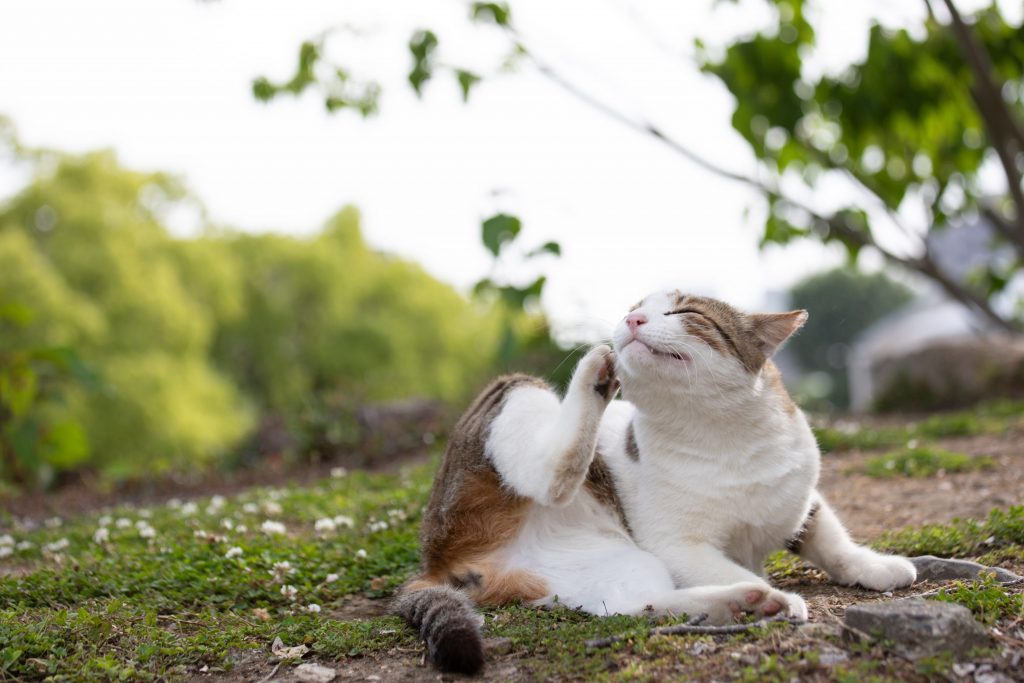What to Do if Your Cat Has Dry Skin

Dry, itchy skin can significantly impact pet health and make our feline companions uncomfortable—and unhappy. Occasional itchiness is common and usually the result of dry air. But if your cat’s dry skin doesn’t go away with simple DIY measures, or if your cat exhibits symptoms of an illness, your friends at Dupont Veterinary Clinic are here to help!
Common Causes of Dry Cat Skin
There are many factors in your kitty’s daily life that can lead to dry skin. Here are a few of the most common:
Dry Air
Cats can suffer from dry skin when the humidity dips. This happens often during the winter and also impacts cats in perpetually arid climates.
Insufficient Grooming
Grooming is an important aspect of pet health. If your cat is elderly or suffers from arthritis or obesity, he or she may not be able to groom properly. This can cause matted or greasy fur, and irritated skin.
Unbalanced Nutrition
Nutritional deficiencies can cause dry cat skin—not to mention other health conditions. We are always happy to discuss your individual cat’s specific dietary needs at every wellness visit, and we welcome your questions between appointments.
Over-Bathing or Improper Bathing
Unless your cat is a hairless breed, extremely soiled, or perhaps a recently rescued kitty covered in fleas, cats do not need baths. However, if your cat does require baths, your cat could experience dry skin if bathed too frequently, if you use a shampoo not made specifically for felines, or if the water is too warm.
Fleas and Ticks
Parasites like fleas, ticks, mites, and ringworm can all cause itchy, irritated skin. Cats that are sensitive to flea saliva can develop flea allergy dermatitis after just one bite.
Allergies and Illnesses
Allergies and itchiness seem to go hand-in-hand. Environmental allergens like pollen and mold, food allergies, and allergic reactions to flea bites can all make our cats itch.
Additionally, itchy skin can be an underlying symptom of diabetes and hyperthyroidism. Cats experiencing severe itchiness that is accompanied by extreme thirst and urination, chronic ear infections, weight loss, listlessness, or loss of appetite should be seen by a veterinarian as soon as possible.
Home Remedies that Help
Fortunately, most cases of dry cat skin are easily remedied with simple modifications. Here are some suggestions from the team at Dupont Veterinary Clinic:
- Add a humidifier to your home or your cat’s favorite room.
- Brush your cat every day.
- Bath your cat only if-and-when necessary.
- Feed your feline a high-quality diet that contains appropriate levels of fat and protein. Your Fort Wayne veterinarian can also suggest an omega-3 supplement if your cat’s skin is especially dry.
- Use appropriate parasite prevention.
- Maintain regular wellness visits to screen for underlying illnesses.
If your cat’s dry skin doesn’t go away with simple treatments, or if other symptoms are present, please schedule an appointment with the friendly team at Dupont Veterinary Clinic.
